DSP’s Care, Love and Guidance Helps People Supported Thrive
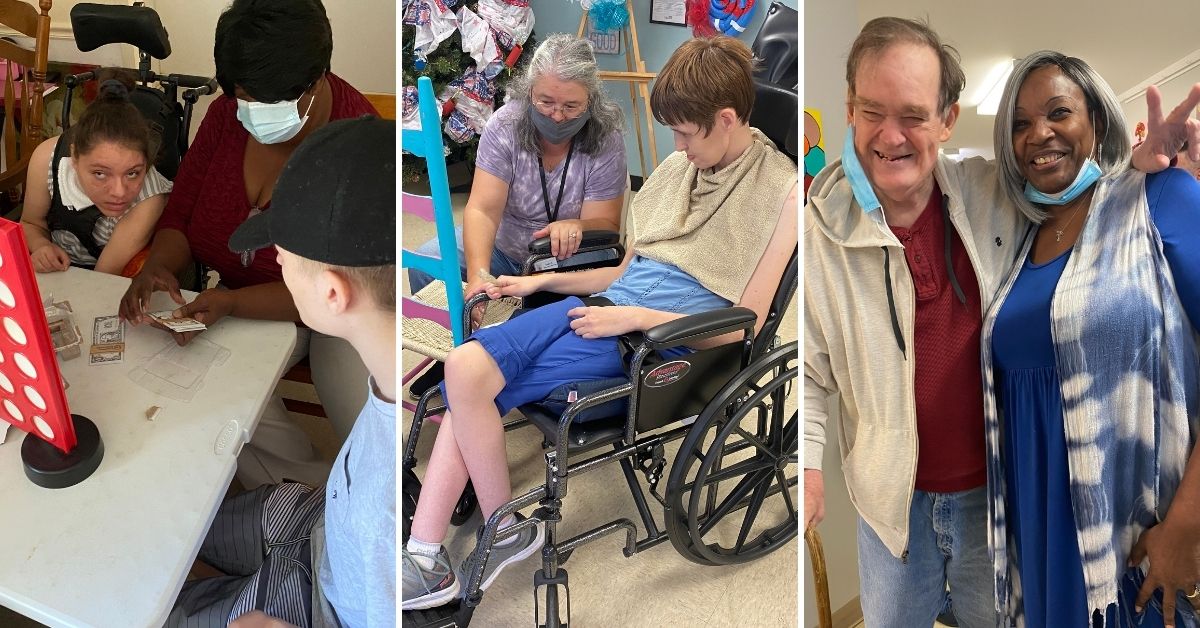
DSPs in action! At left: Mallard Lane Home DSP Helen Quick, center, plays a game with residents Jessica McCord, left, and Blake Workman, right; center, Columbus Industries DSP Sandra Hussey, left, works on weaving a chair seat with person supported Leanne Butler; and, at right, Monarch Creative Arts and Community Center DSP Diane McAllister, right, enjoys some laughter with day program participant, Jeff Pitts.
The care that direct support professionals (DSPs) provides positively impacts lives every day. Monarch DSPs, Deborah Tillman, Jimmy Covington, Mary Blue, Gail Whitehurst and Tomika Davis can attest and confirm this.
Over 600 Monarch DSPs serve people with intellectual and developmental disabilities (I/DD), mental illness and/or traumatic brain injury (TBI). Monarch recognizes the important and extraordinary work that DSPs do every day across our sites during DSP Week, Monday, September 12 through Friday, September 16.
The impact of a DSP’s role in the life of an individual served can’t be measured but can be viewed in the confidence of people supported when goals are met, the genuine smiles when they see their support staff or the hugs that people served so often willingly share.
Across Monarch’s North Carolina day programs and group homes, DSPs are accustomed to being flexible, adjusting to what each day holds. “Our DSPs are the backbone of our support services. They show up every day and bring life to our programs and services. I want our direct support staff to know that their caring matters more than they know,” shares Christy Shaver, MHA, executive vice president / chief operating officer, Long-Term Services and Supports.
Christy notes that there are challenges to being a DSP and she is proud of Monarch staff who go above and beyond to provide excellent care: “They wear so many hats. Sometimes they are a listener, teacher, counselor, friend, confidant, advocate, caregiver and so much more. Wearing these different hats and having skills in all these ways is challenging. We appreciate them more than we can put into words.”
Continue reading to learn more about a few of Monarch’s longtime DSPs who have made an impact on the people they serve.
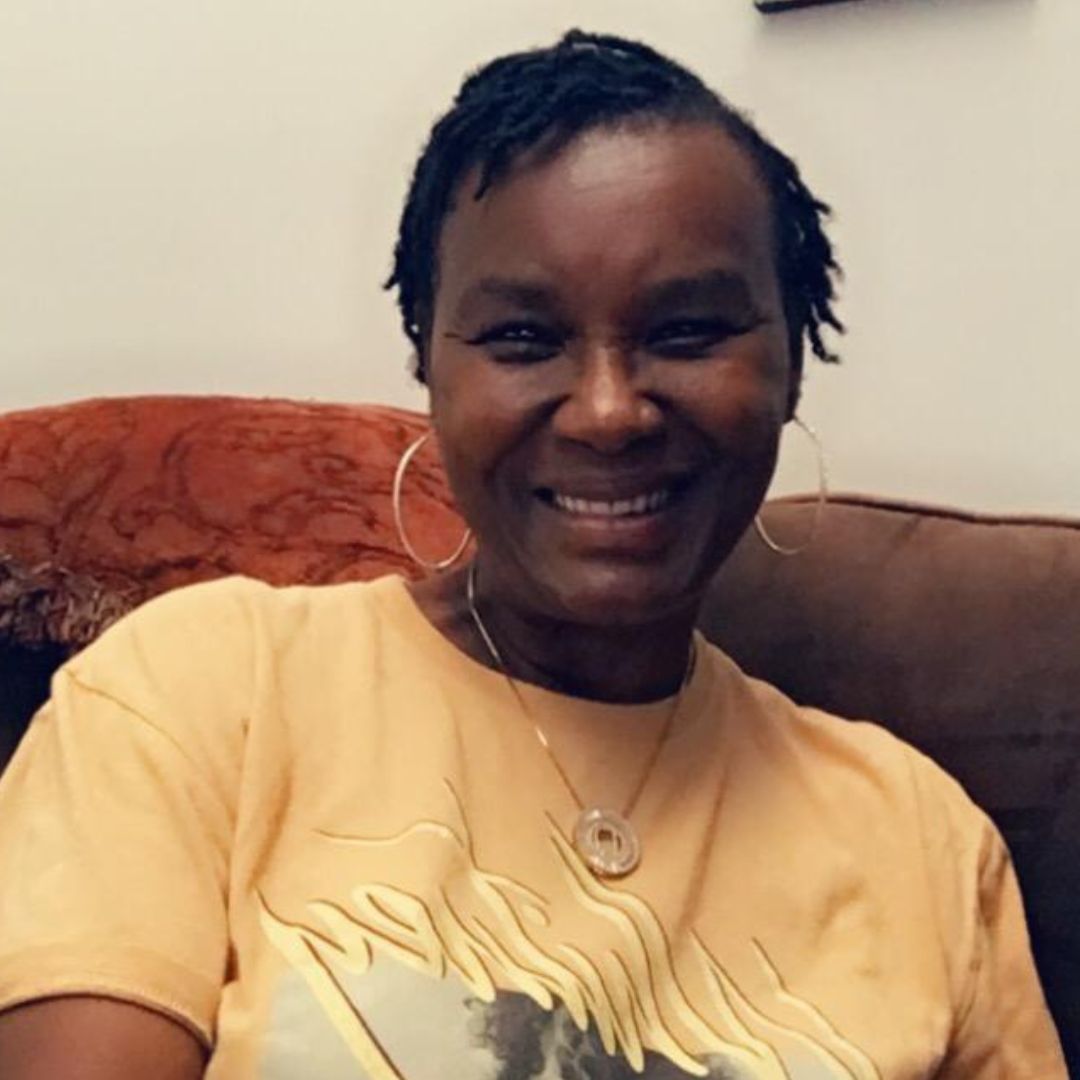
Deborah Tillman
Deborah Tillman, Meadowview Group Home, 24 years
A DSP for over 24 years, Deborah Tillman strives to work with a positive attitude and sets the expectation to have a great day. Married for 42 years, a mom to three daughters and grandma to six grandchildren, family is very important to her – her own and her Monarch family.
“Working with the people we support has taught me so much, such as how to be a great listener, not to be in a hurry, that time is valuable and to always have patience,” she says. “The pleasure I get when I arrive to work when the people supported run up to you and are very excited to see you is rewarding. They say ‘I missed you! Can I have a hug?’ It’s things like this that mean so much to me.”
Jimmy Covington, Green Street Group Home, 19 years
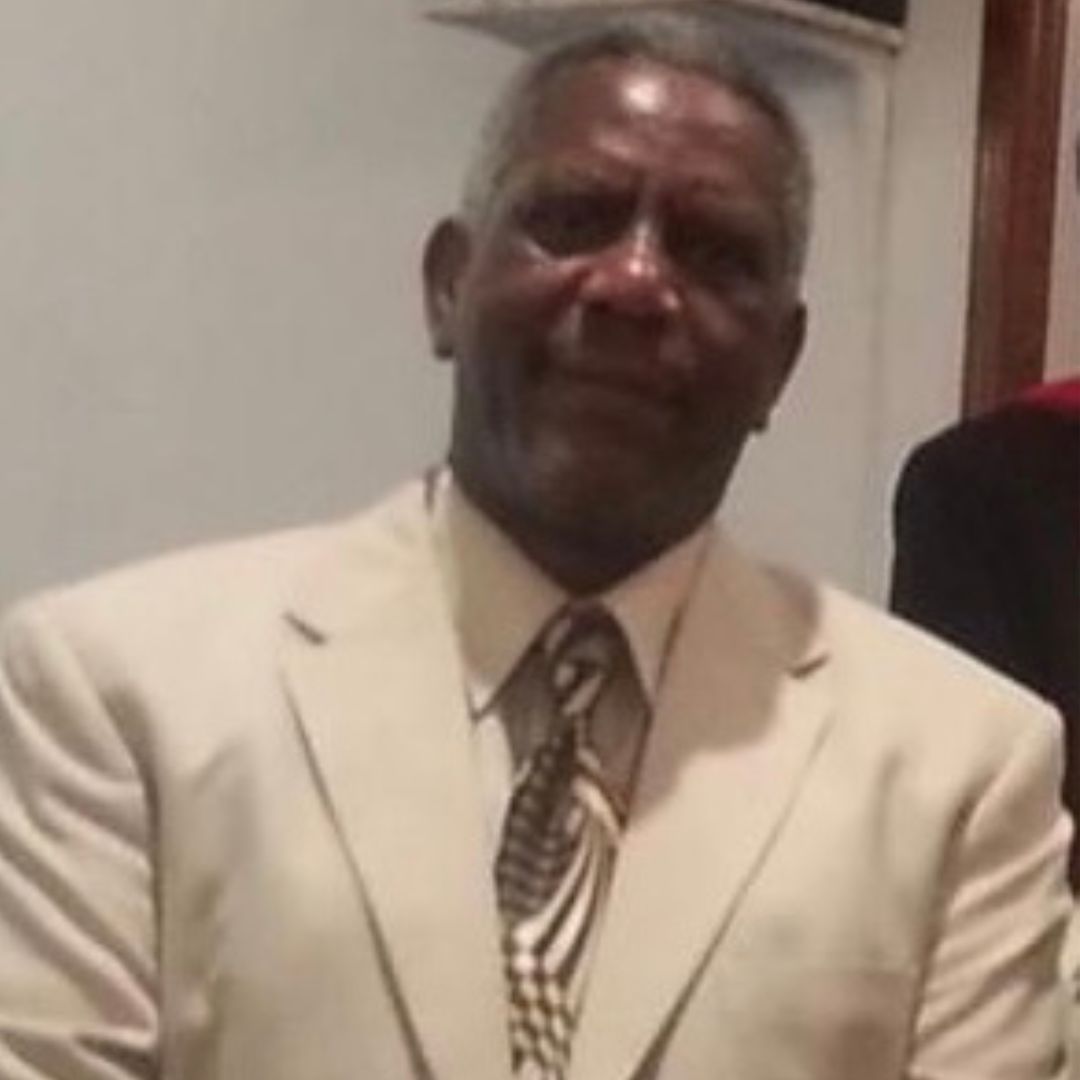
Jimmy Covington
Jimmy Covington has always enjoyed caring for others throughout his life. Prior to becoming a DSP, he served as a therapeutic foster parent. In 2003, a friend thought he would be perfect for a DSP position available at Monarch and encouraged him to apply.
Jimmy has learned life lessons from the Green Street group home residents in Moore County. “Everyone has their own unique qualities. We should all treat others the way we want to be treated,” he says.
Jimmy enjoys fun times with residents and says they have a way of teasing him for his daily humming and sayings: “I will say, ‘Oh my!’ or ‘Ho, ho, hum’ when I am moving around. Our residents will tease me for doing this. It tickles me and they get a kick out of it!”
What advice does he share with others who would like to become a DSP? “It’s important to be fair and open-minded. Make sure that you understand the challenges and benefits of working with individuals who have disabilities.”
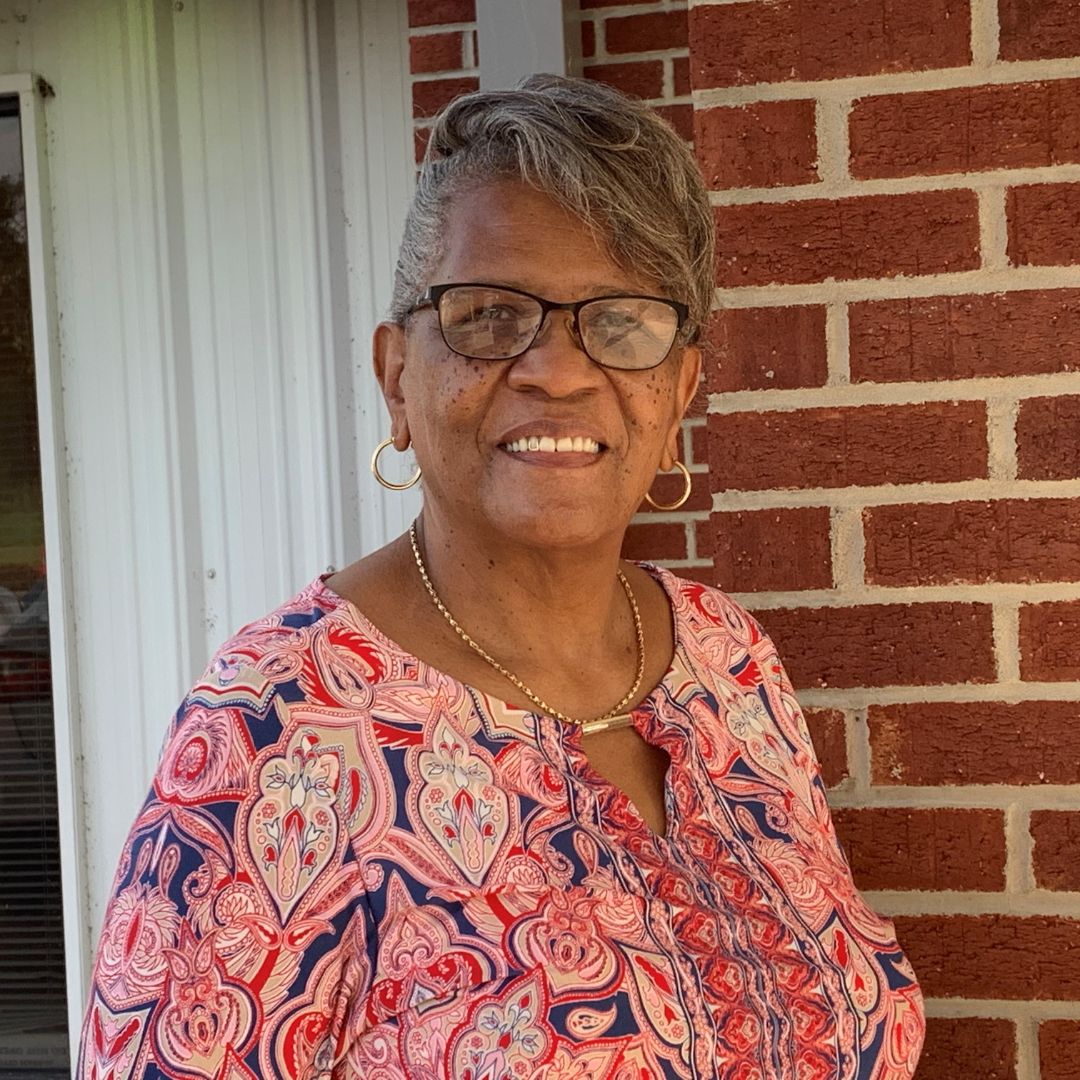
Mary Blue
Mary Blue, Vocational Options of Hoke County (VOHC), 28 years
That end-of-the-day feeling of having helped someone, serving others and making an impact in someone’s life is reward enough for DSP Mary Blue. “I look forward to each day as a DSP knowing that at the end of the day I have helped and most likely accomplished a goal with any person supported that I have worked with – seeing a smile on their faces and the comfort I can give them,” she says.
In years past, Mary was the only person of color when she would go out into the community with the person she supported at the time. There was a community member who would not acknowledge Mary when she was with her person supported. “One particular day the person I was supporting spoke up and said, ‘Hey, this is Mary!’ That made me feel appreciated because they just didn’t say this was my support but that I was a person,” she explains.
One of the most important lessons from serving people with I/DD? It’s not the big things that matter. It is the small things and the simplest things that matter. Everyone is important. We are all different but we are important.”
Gail Whitehurst, River City Enrichment Center, 28 years
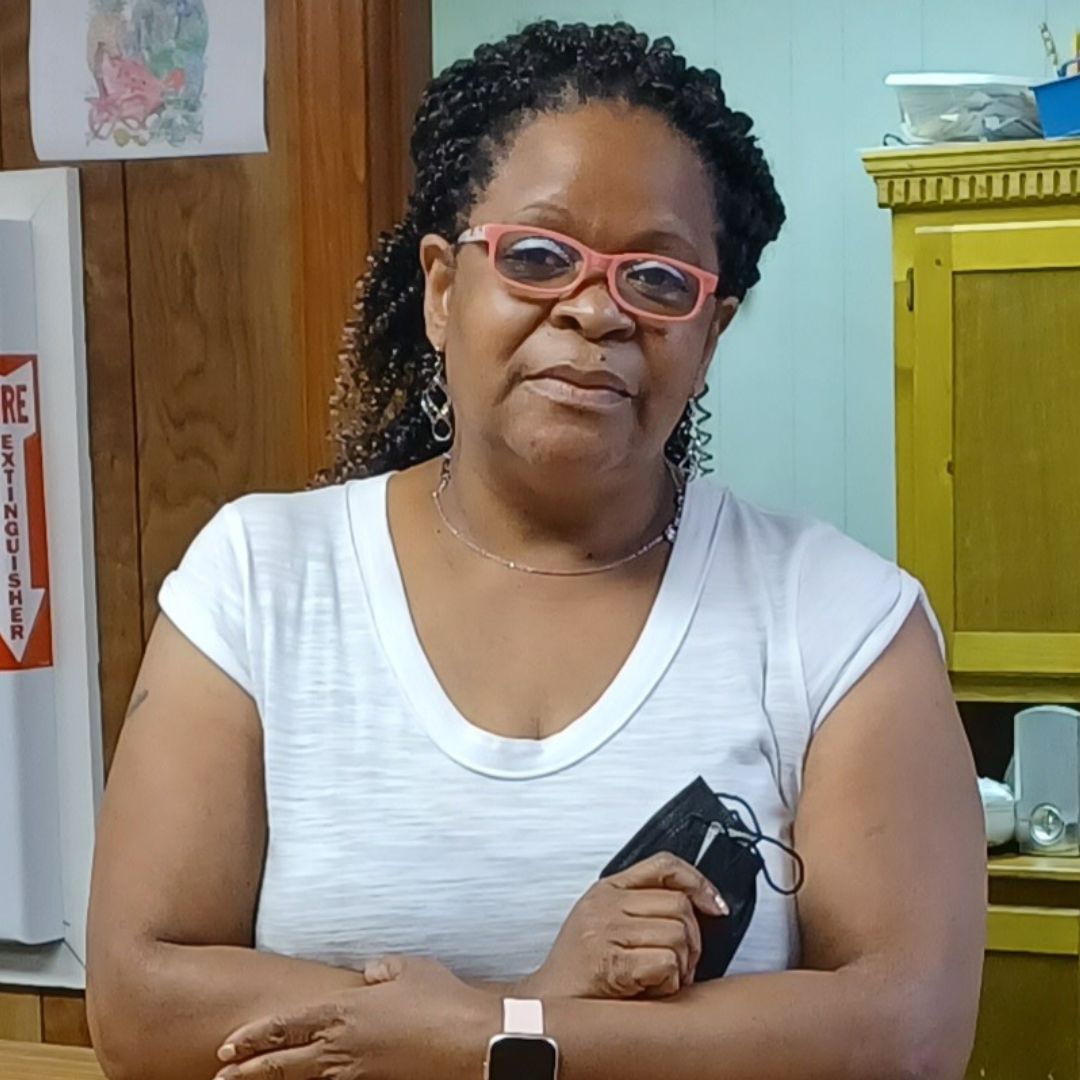
Gail Whitehurst
In 1994, a friend asked Gail Whitehurst if she would consider working with adults with I/DD. Since she didn’t have any experience in the field, she wasn’t sure but decided to apply after finding out more details.
“Thankfully, I was hired. After a few months of assisting six adults at their group home, I realized that helping others was my passion. And, that passion still burns 28 years later!” she declares.
The most rewarding aspect of being a DSP, Gail says, is the support provided to a person served through advice, telling a joke, the opportunity to take time to listen to them, seeing them smile or hearing their laughter.
“We are all human. Therefore, be respectful of each other’s feelings,” Gail says of the most important lesson the people supported have taught her.
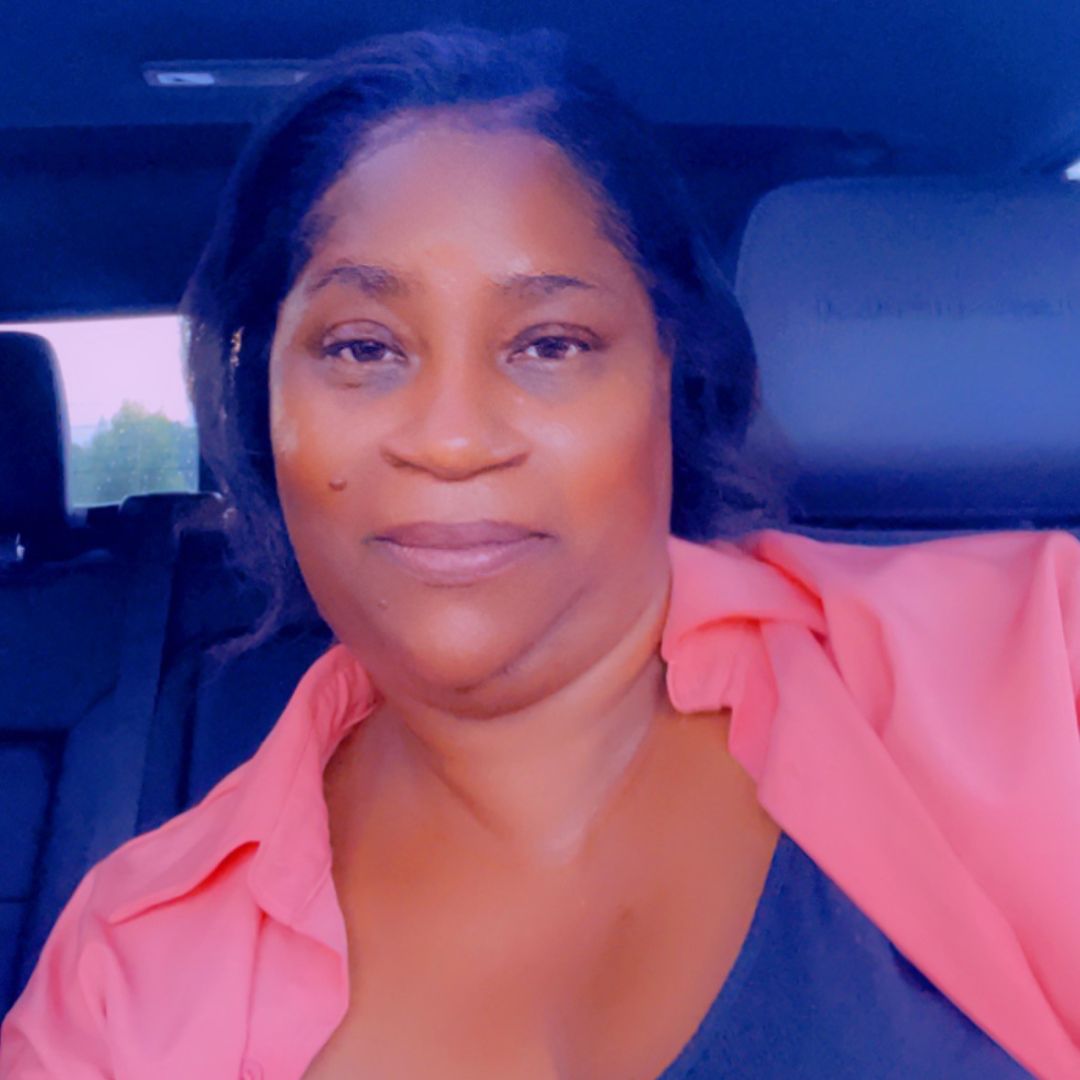
Tomika Davis
Tomika Davis, East Main Group Home, 11 years
Looking back, Tomika Davis sees being laid off from a manufacturing position as a blessing in disguise prior to accepting a DSP position at Monarch: “I began to love what I do. Empathy became a new word in my vocabulary and I use it every day.”
She works the third shift at East Main Group Home in Albemarle and has the opportunity to see residents in the morning. “Being that I work at night, I wake them up each morning. So, the smiles and the morning conversations really make my day,” she explains.
Residents enjoy all activities but Tomika said they especially relish exploring their community. “That’s the first question I’m asked as I walk through the door if I visit outside of my usual shift. They absolutely love to be on the go,” she shares.
Tomika believes that all of us has more similarities than differences. “Just because they have a disability does not mean that they can’t or don’t want to do the same things that we do,” she attests.
Posted on: Friday September 9, 2022

